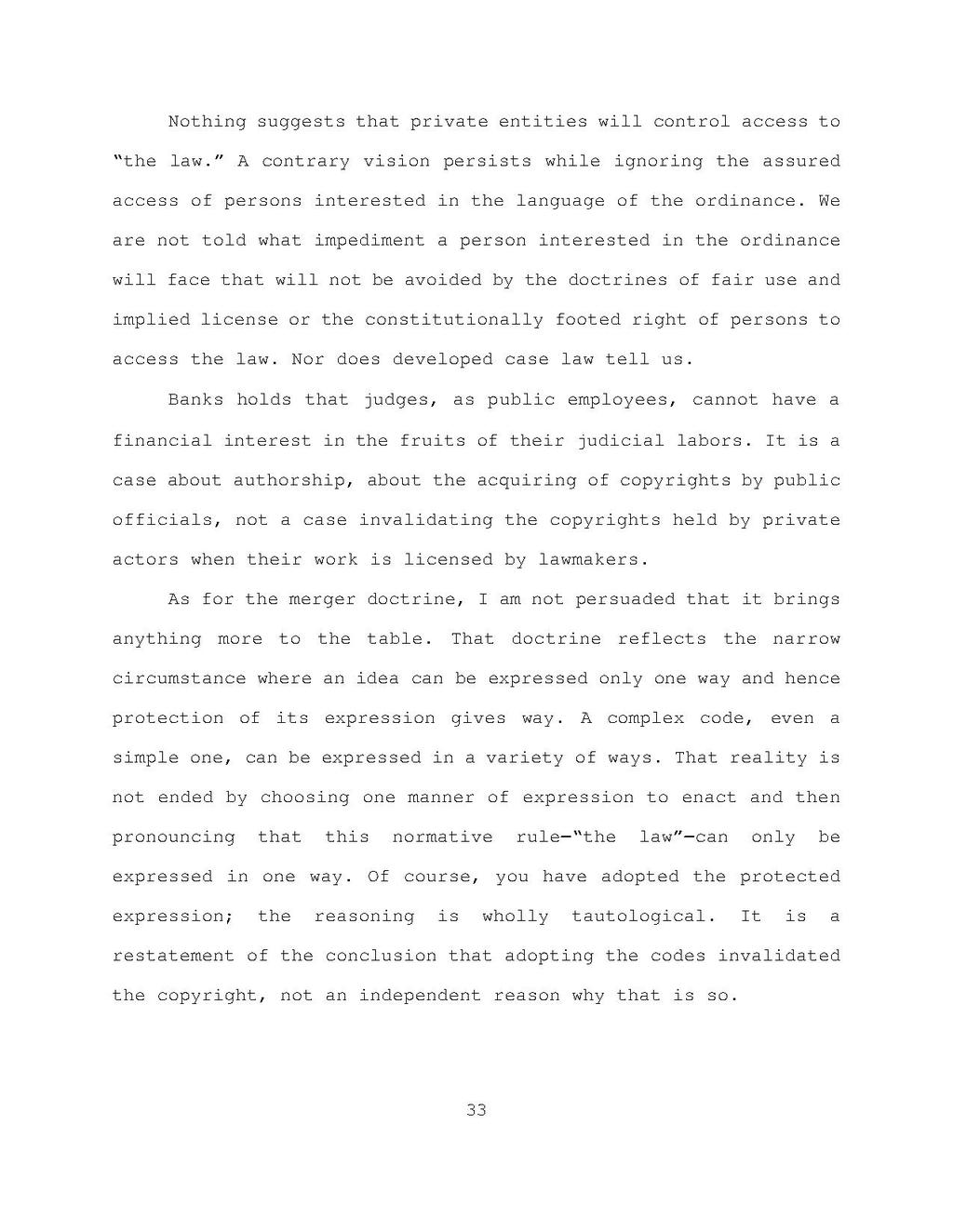Nothing suggests that private entities will control access to "the law." A contrary vision persists while ignoring the assured access of persons interested in the language of the ordinance. We are not told what impediment a person interested in the ordinance will face that will not be avoided by the doctrines of fair use and implied license or the constitutionally footed right of persons to access the law. Nor does developed case law tell us.
Banks holds that judges, as public employees, cannot have a financial interest in the fruits of their judicial labors. It is a case about authorship, about the acquiring of copyrights by public officials, not a case invalidating the copyrights held by private actors when their work is licensed by lawmakers.
As for the merger doctrine, I am not persuaded that it brings anything more to the table. That doctrine reflects the narrow circumstance where an idea can be expressed only one way and hence protection of its expression gives way. A complex code, even a simple one, can be expressed in a variety of ways. That reality is not ended by choosing one manner of expression to enact and then pronouncing that this normative rule—"the law"—can only be expressed in one way. Of course, you have adopted the protected expression; the reasoning is wholly tautological. It is a restatement of the conclusion that adopting the codes invalidated the copyright, not an independent reason why that is so.
33
